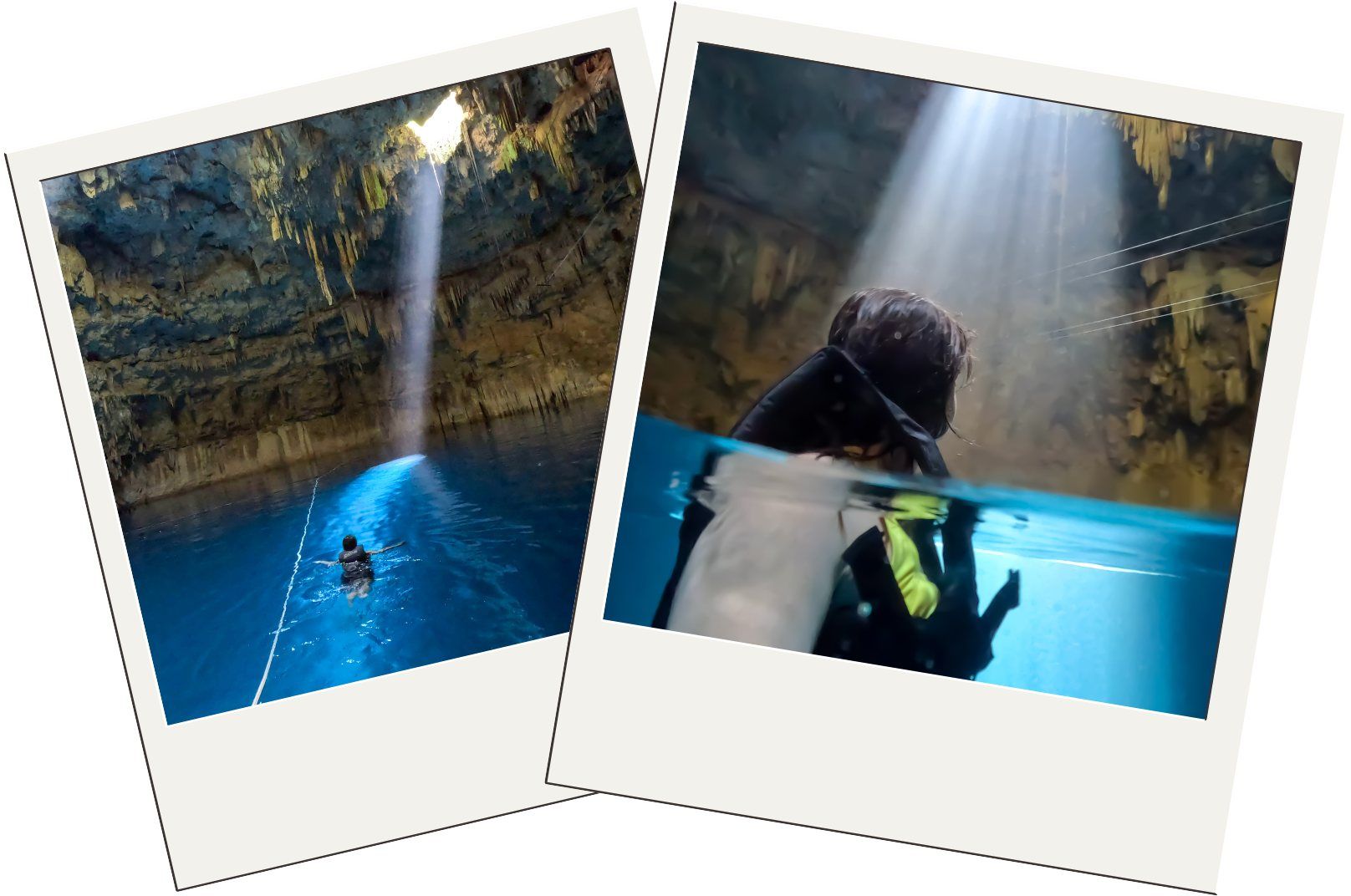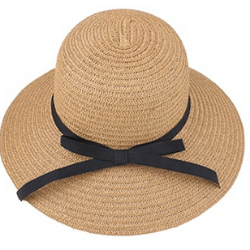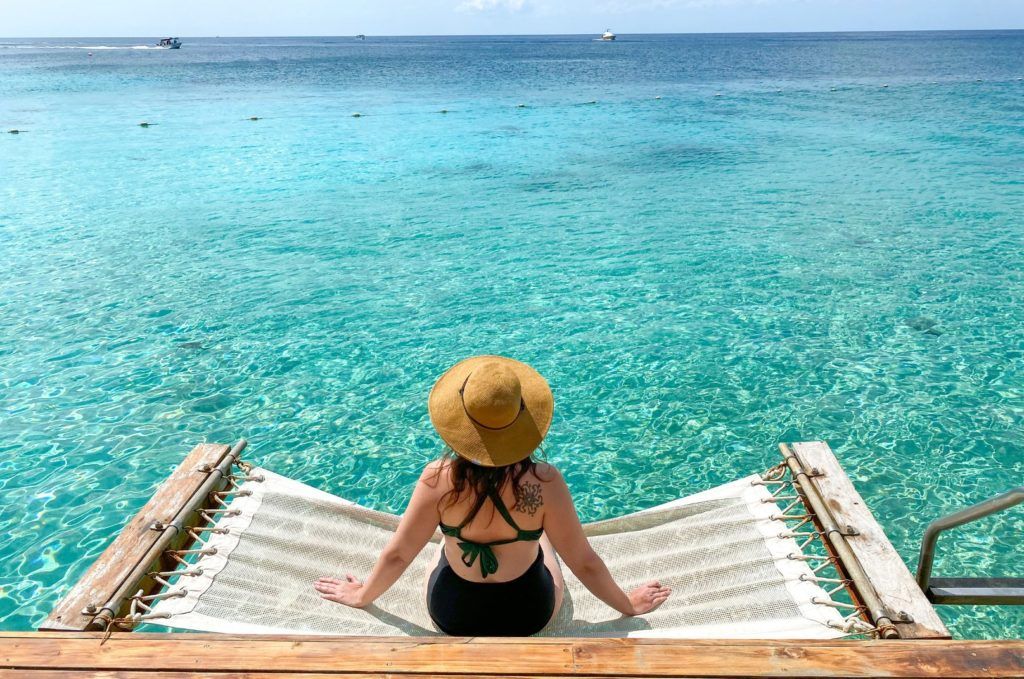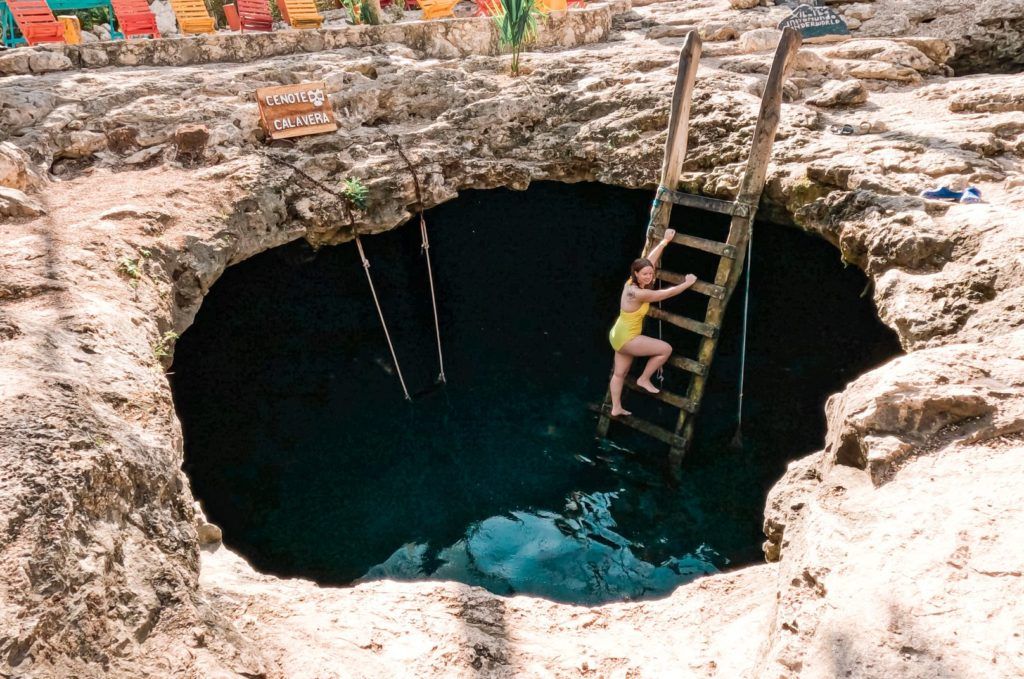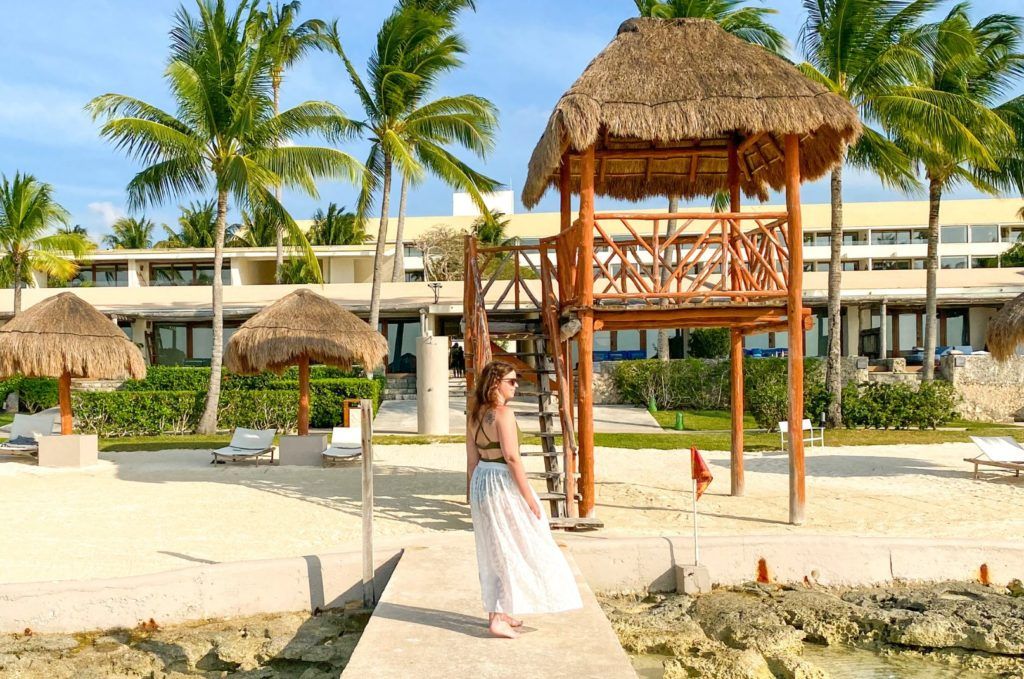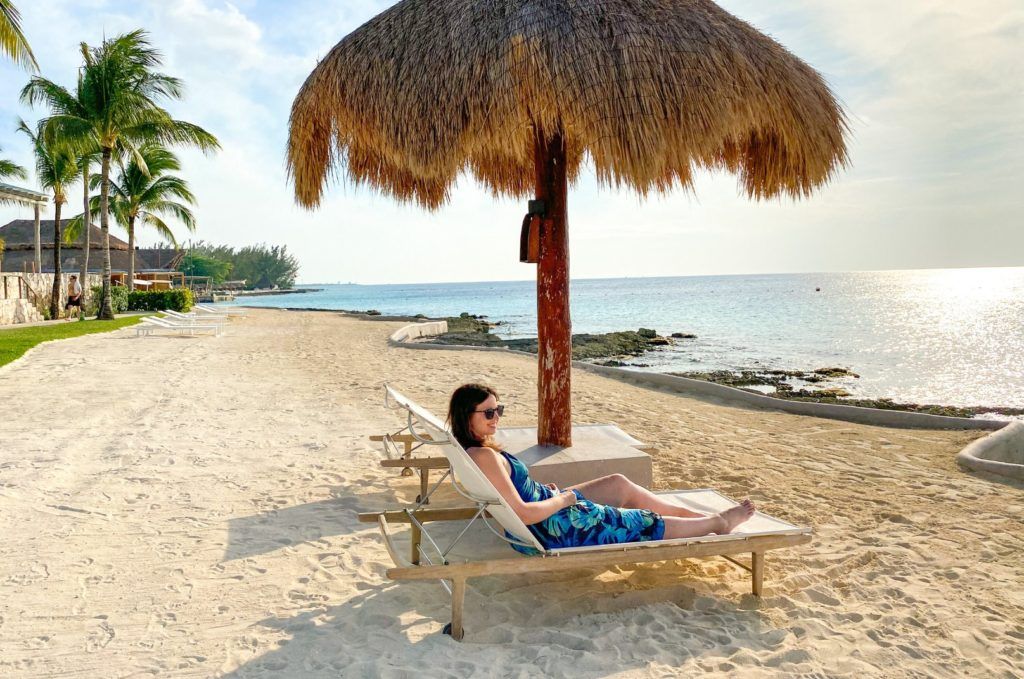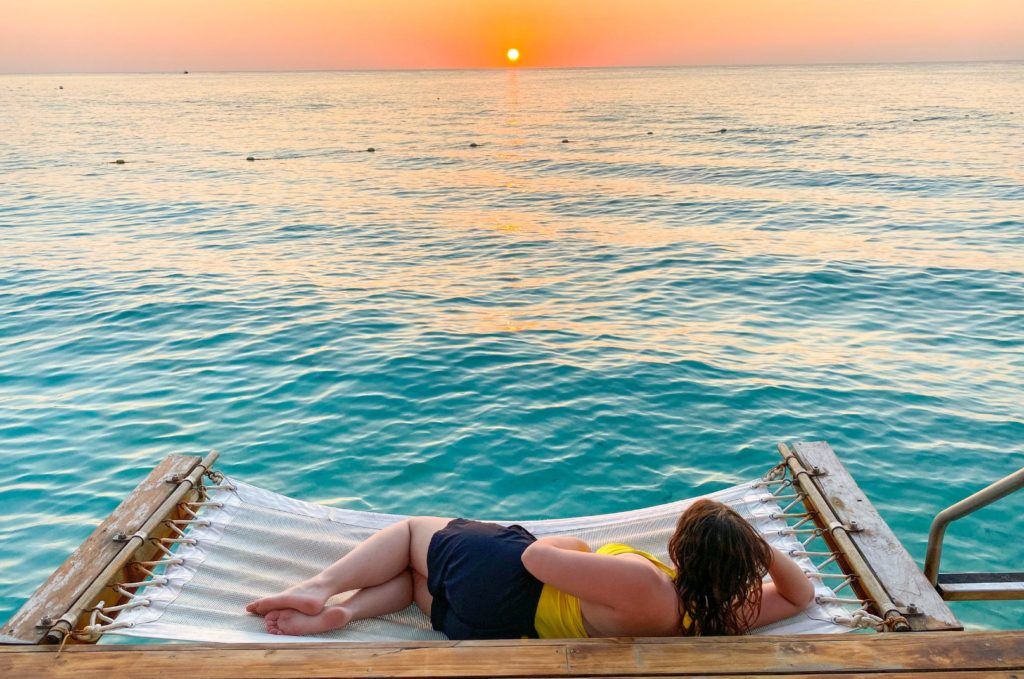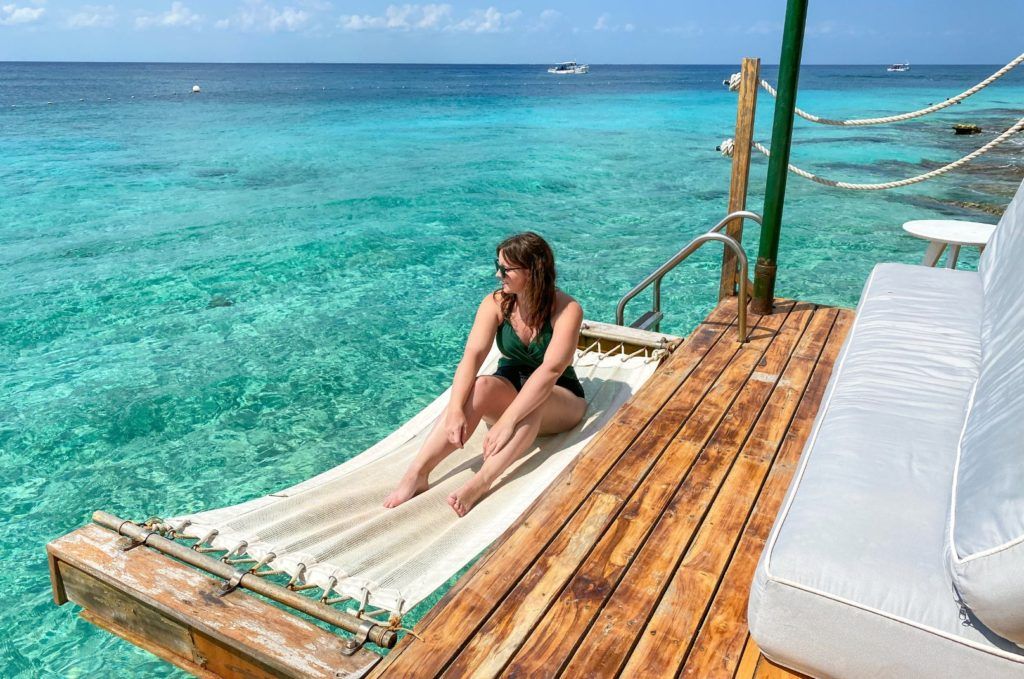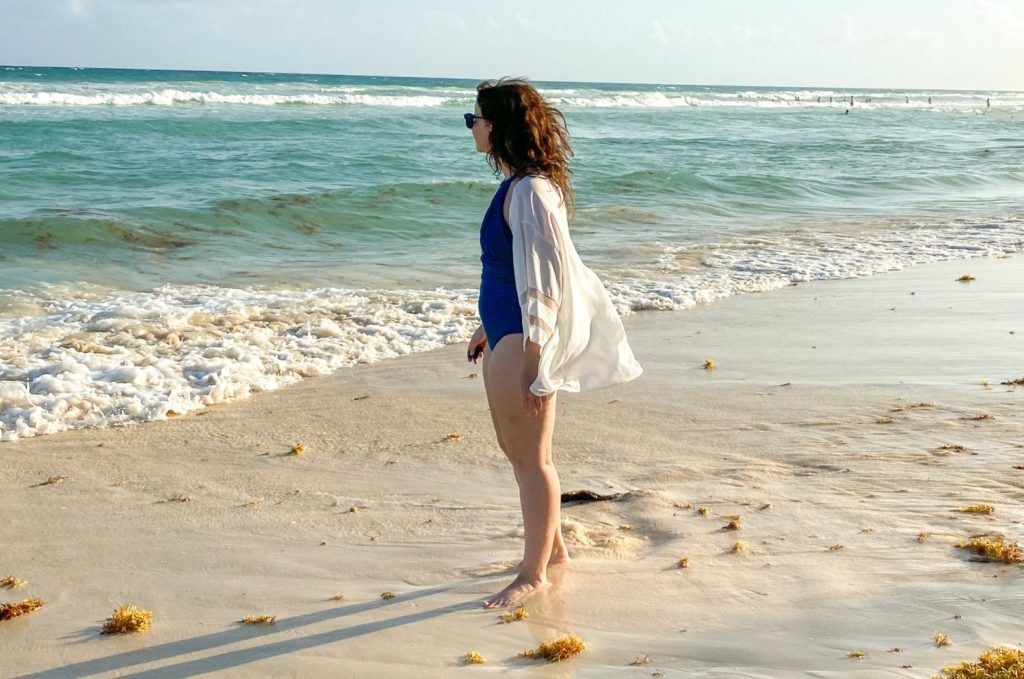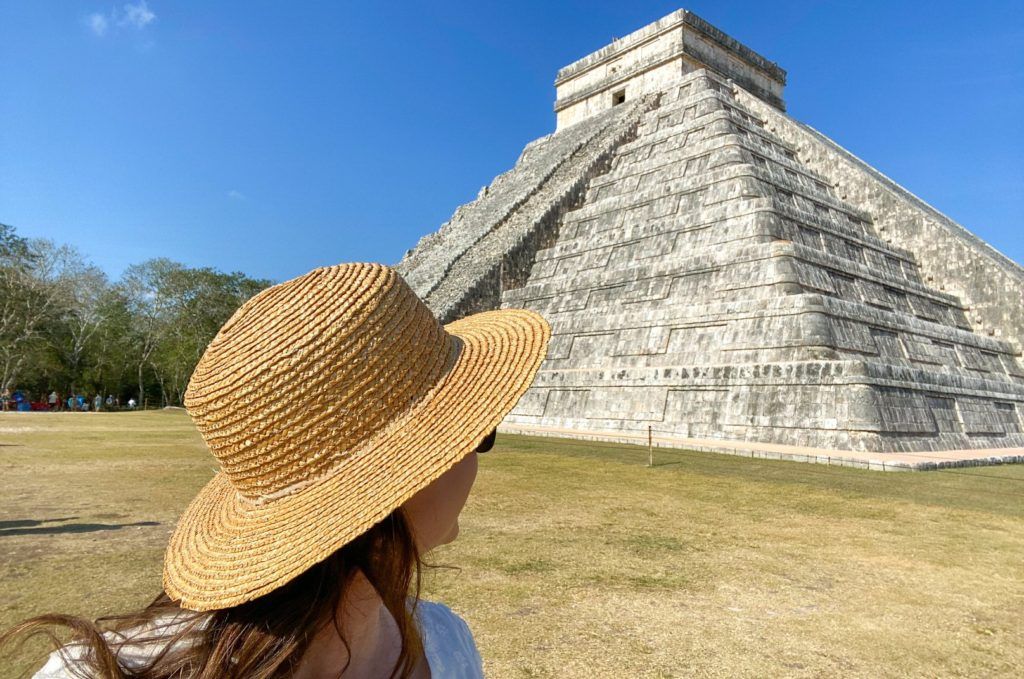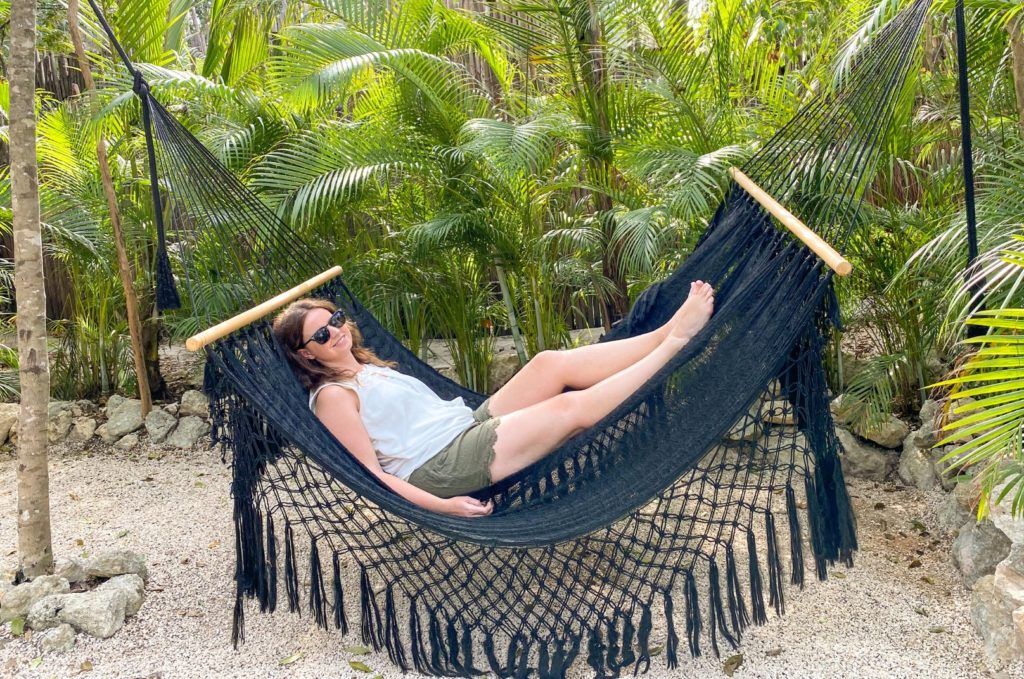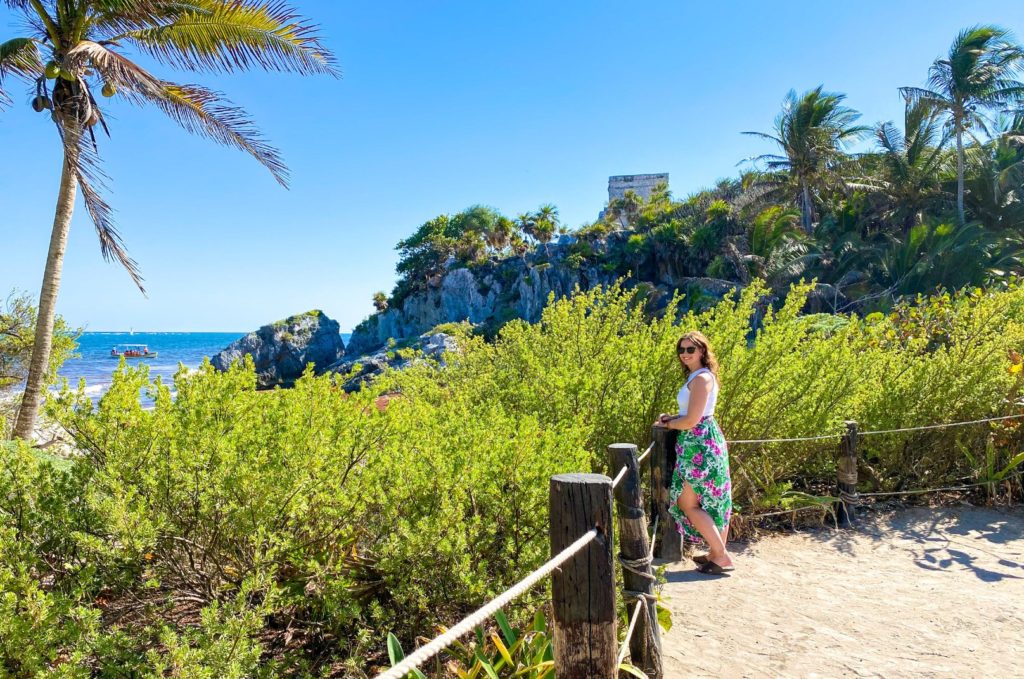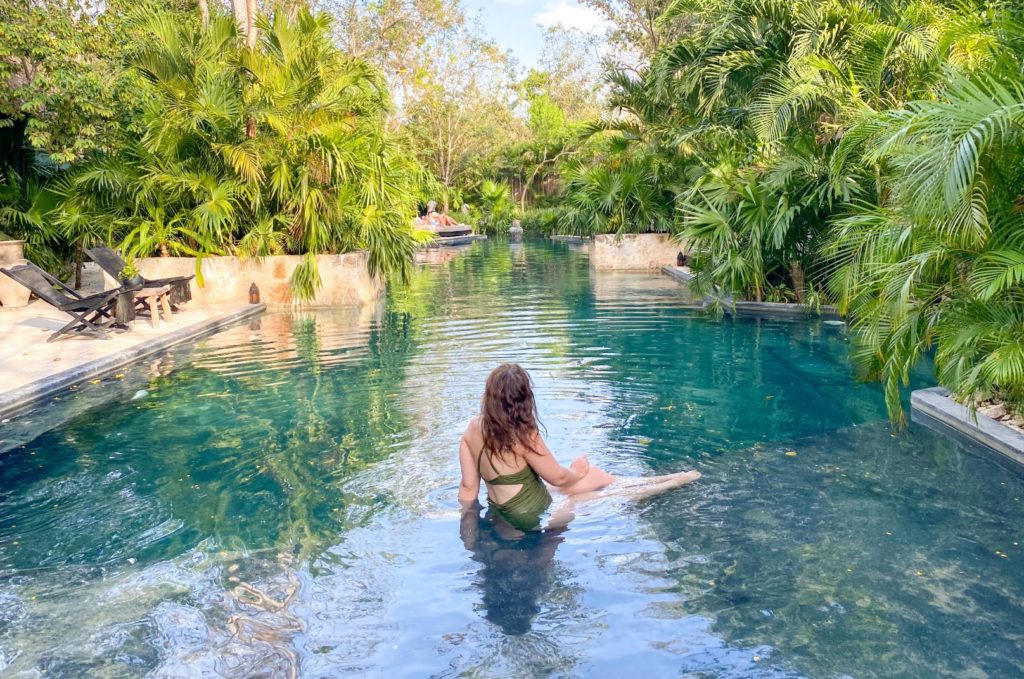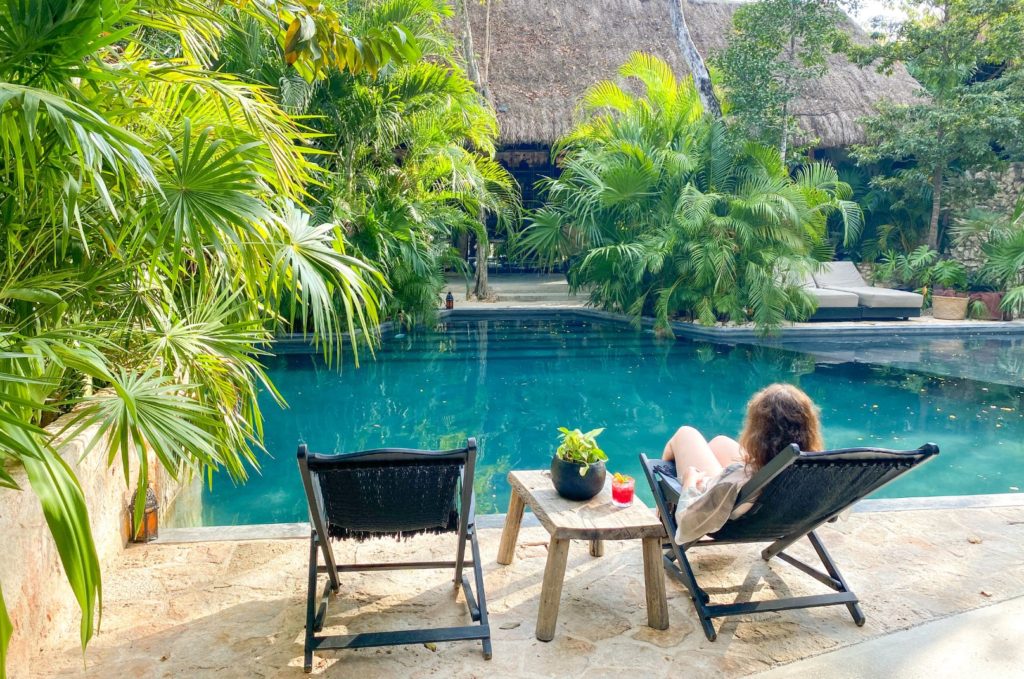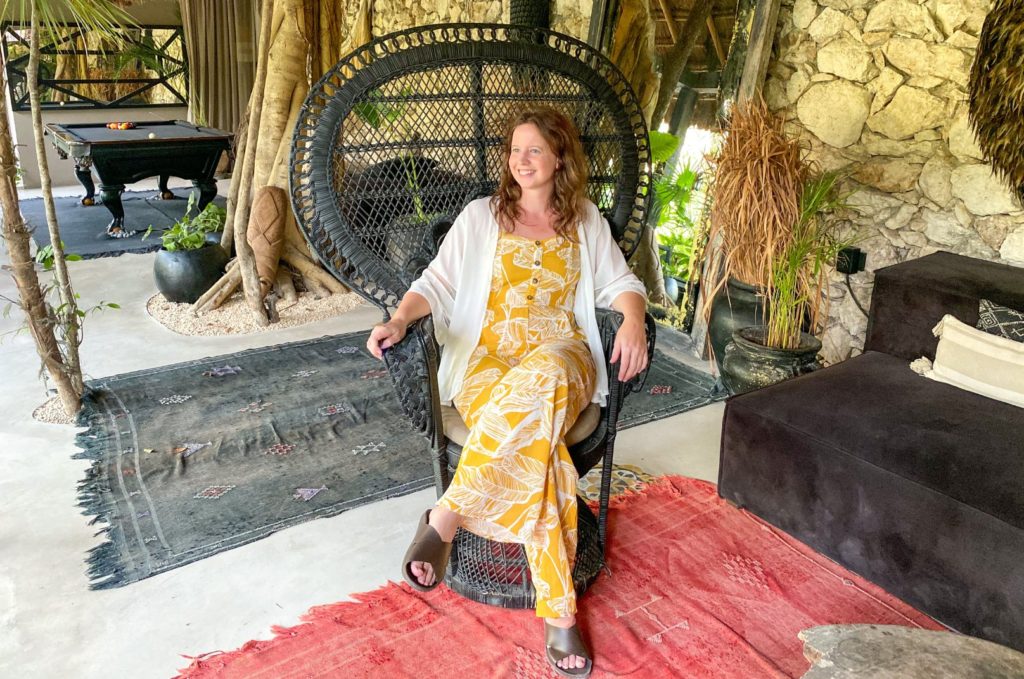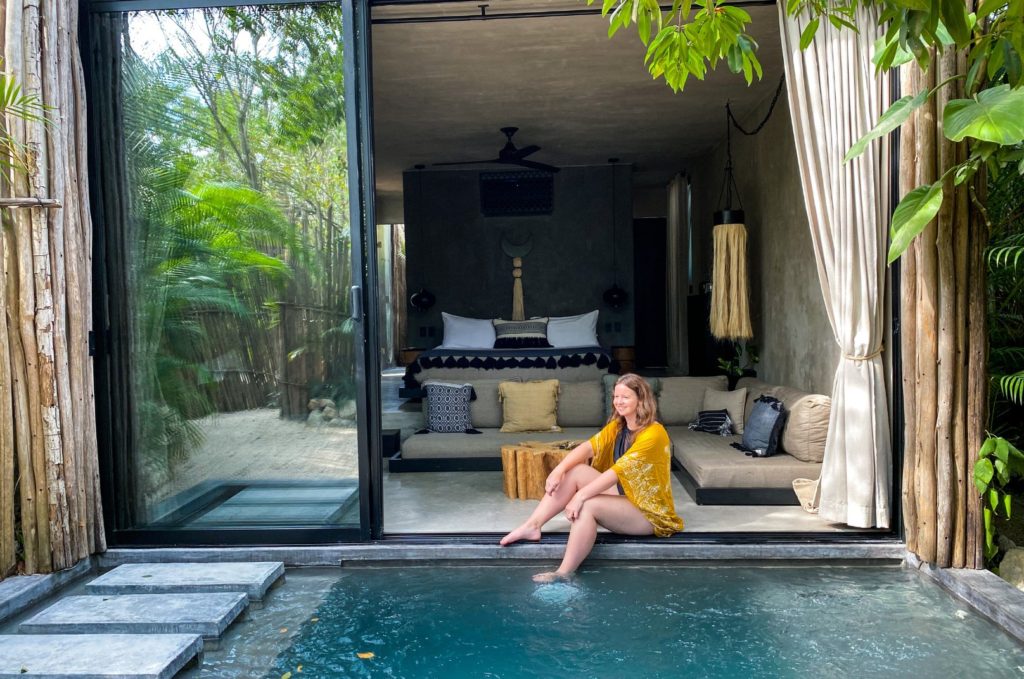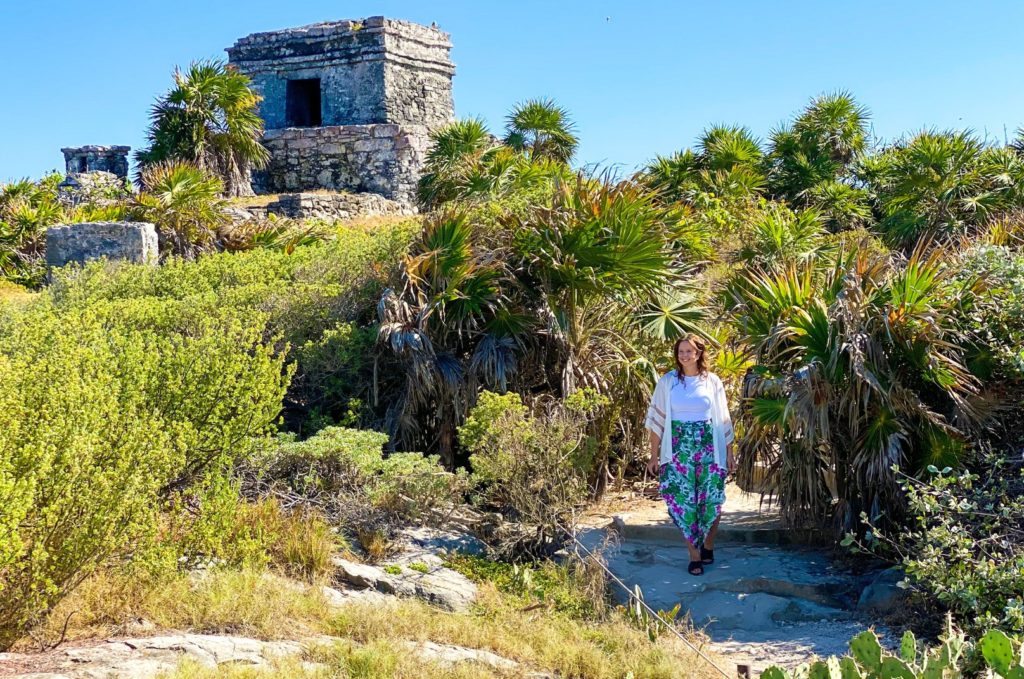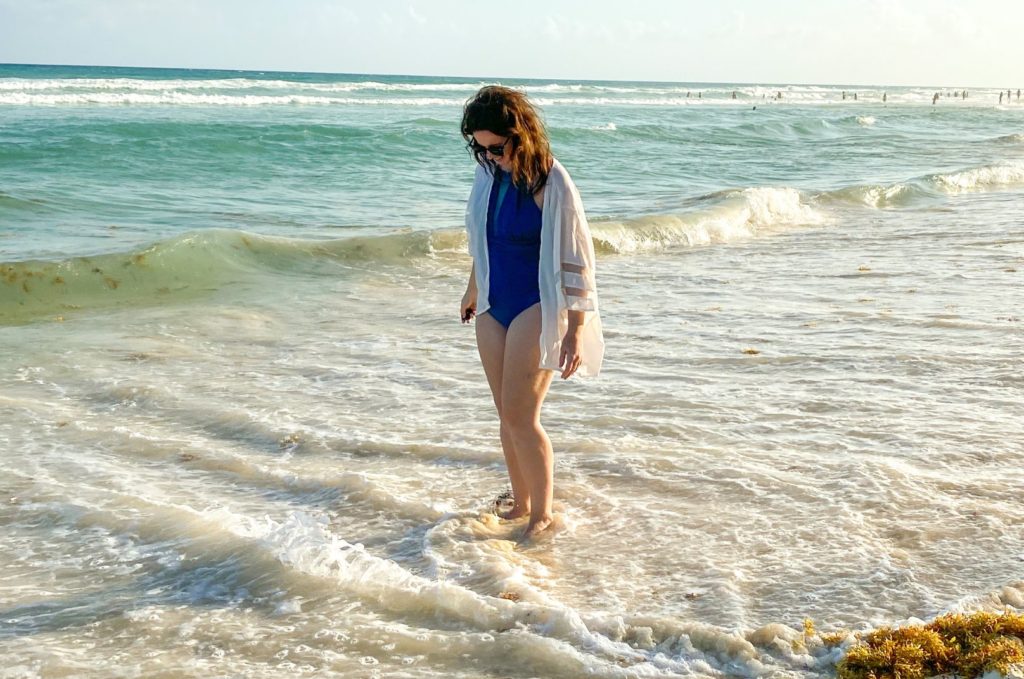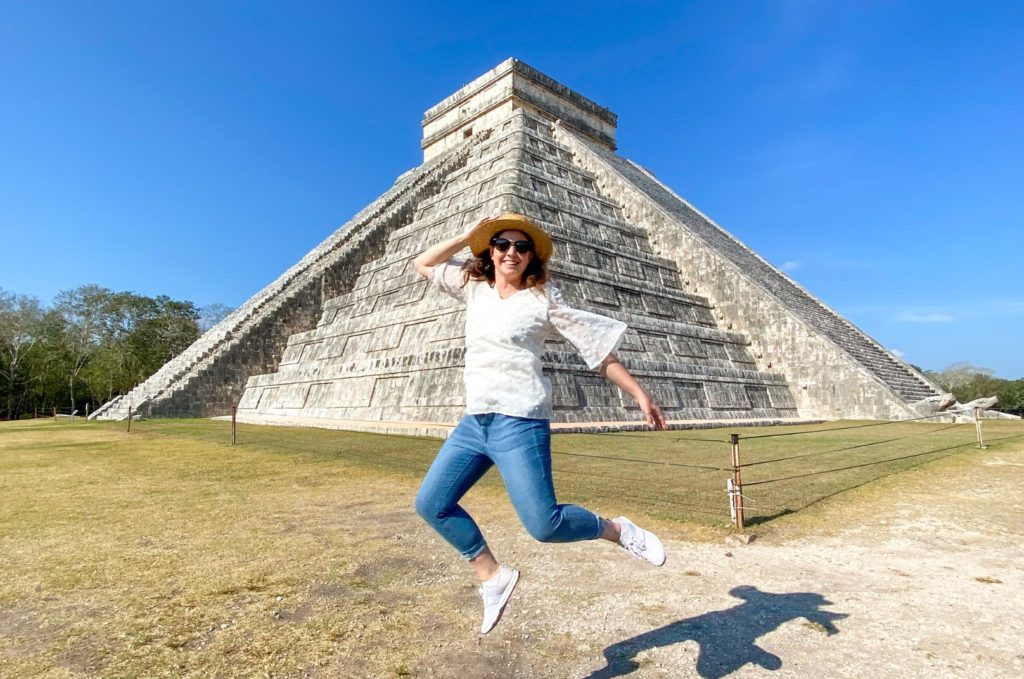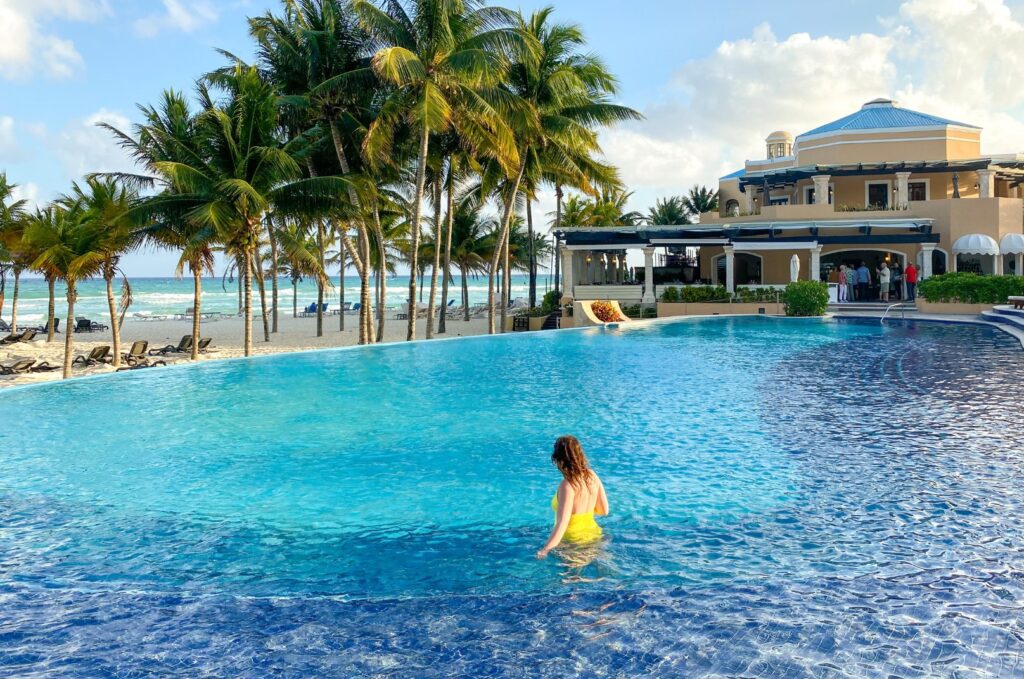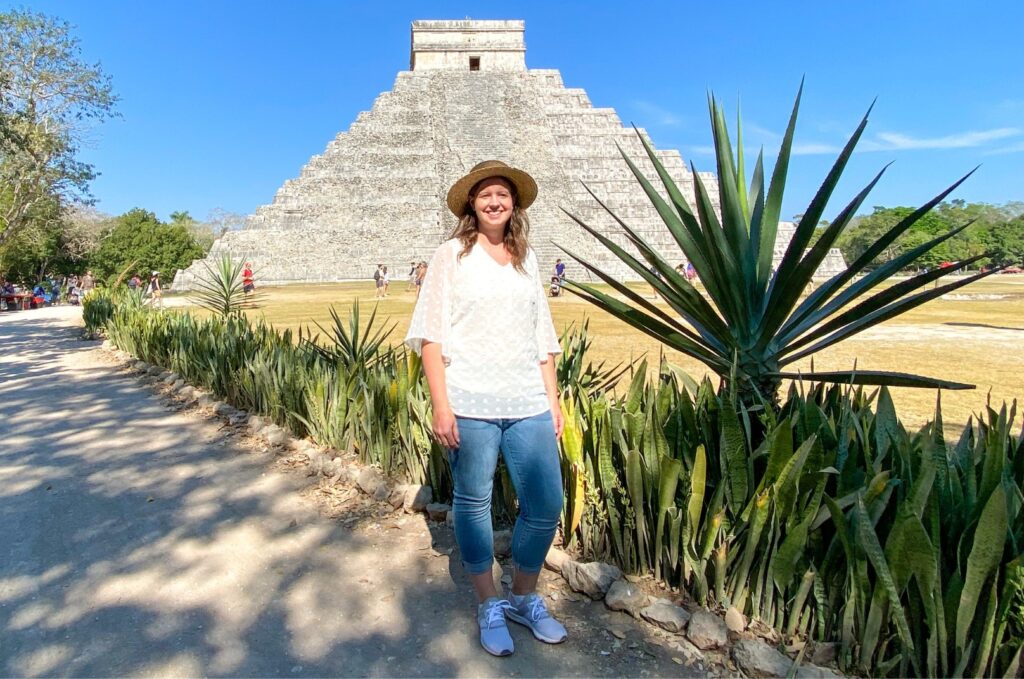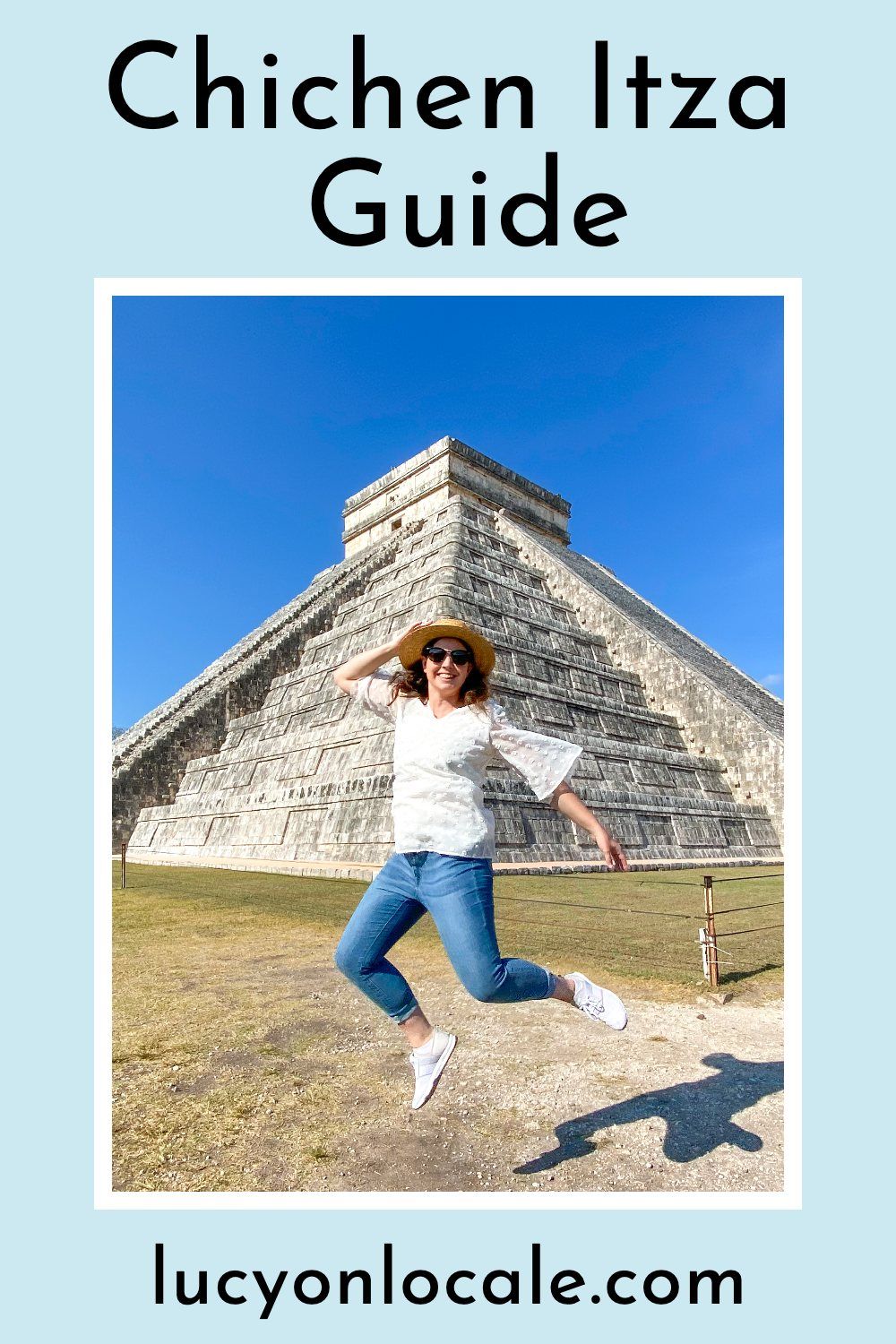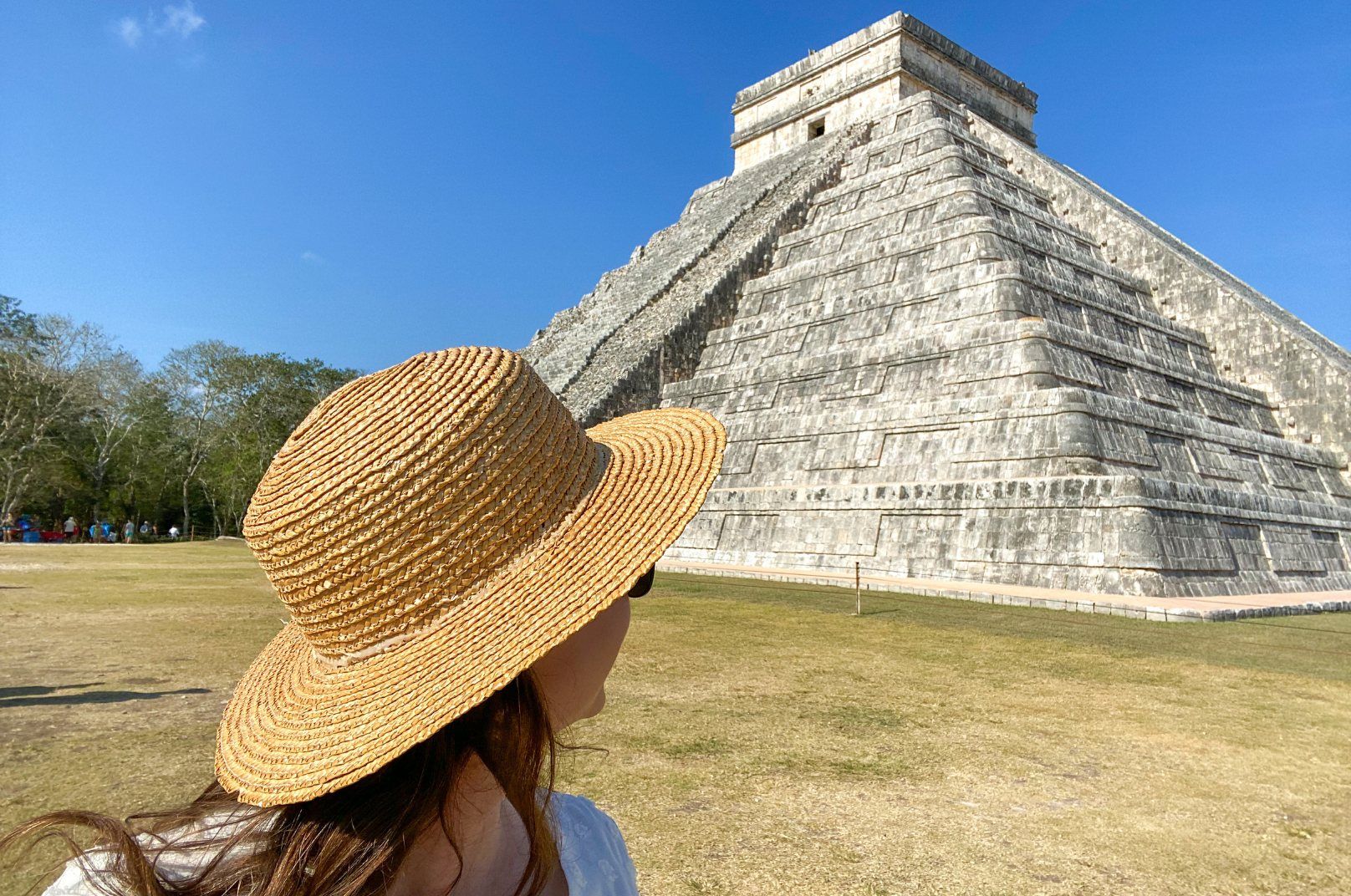
Chichen Itza is one of the New Seven Wonders of the World, and it’s a must-visit destination for anyone interested in history, ancient cultures, or architecture. So this Chichen Itza guide will help you plan an epic trip to the Yucatan Peninsula.
Riviera Maya Travel Guide
This ancient Mayan city can easily overwhelm first-time visitors. With so many iconic landmarks, it can be hard to know where to start. So this guide will ensure you don’t miss a thing in and around Chichen Itza.
Here’s the ultimate Chichen Itza guide!

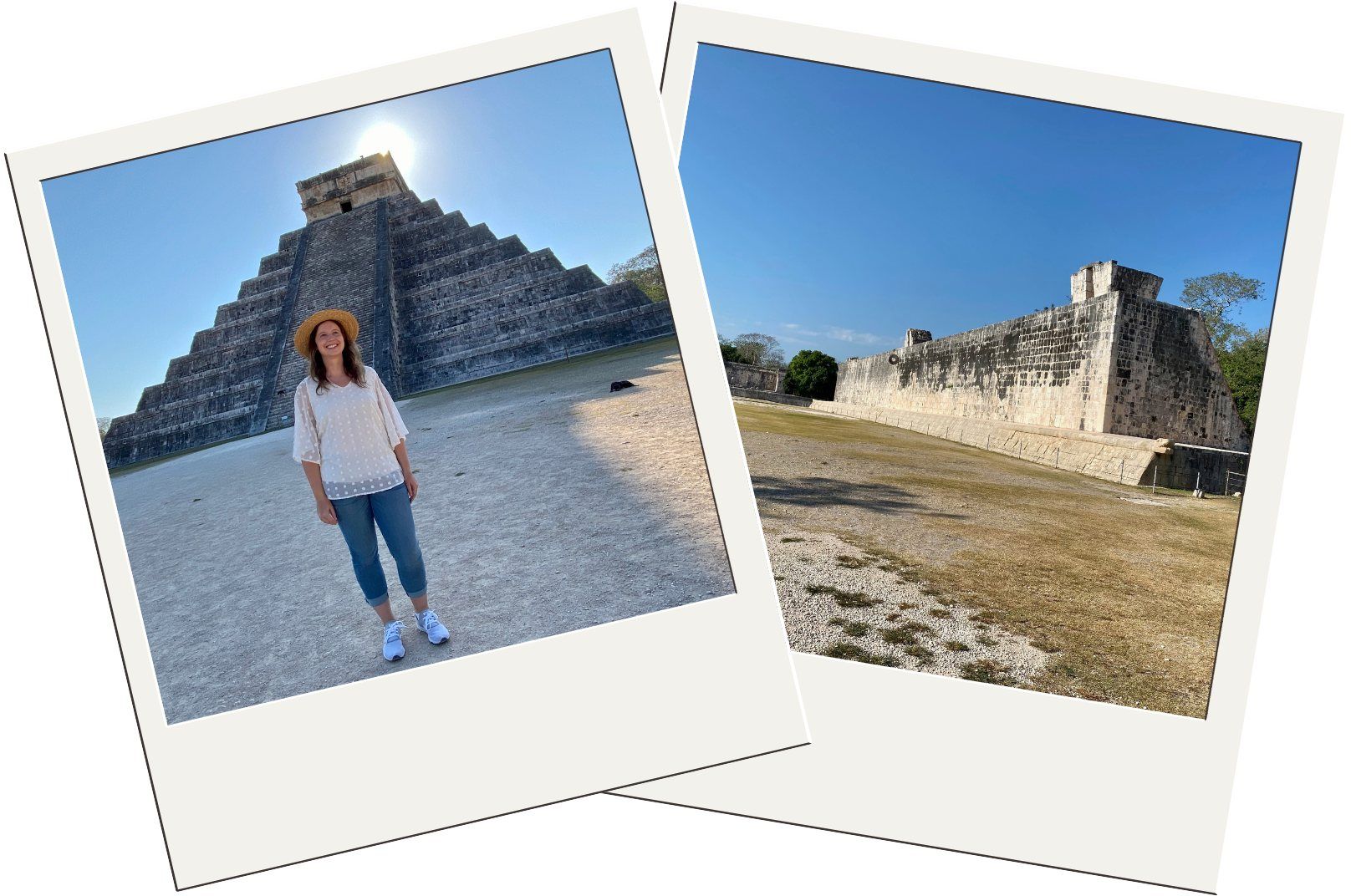
History of Chichen Itza
Chichen Itza has a rich and fascinating history spanning over a thousand years. The Maya people first settled it in the 6th century AD, and it became an important economic and political center. The city’s name means “at the mouth of the well of the Itza,” which references its location near a natural freshwater well known today as the Sacred Cenote.
As Chichen Itza grew in power and influence, so did its architecture and engineering feats. The impressive landmarks you’ll see when you visit, such as the Pyramid of Kukulcan and the Great Ball Court, were built during the city’s height in the Late Classic Period (ca. 800-1000 AD) and the Terminal Classic Period (ca. 1000-1200 AD). These structures reflect the city’s importance as a religious and cultural center and its military might in Central America.
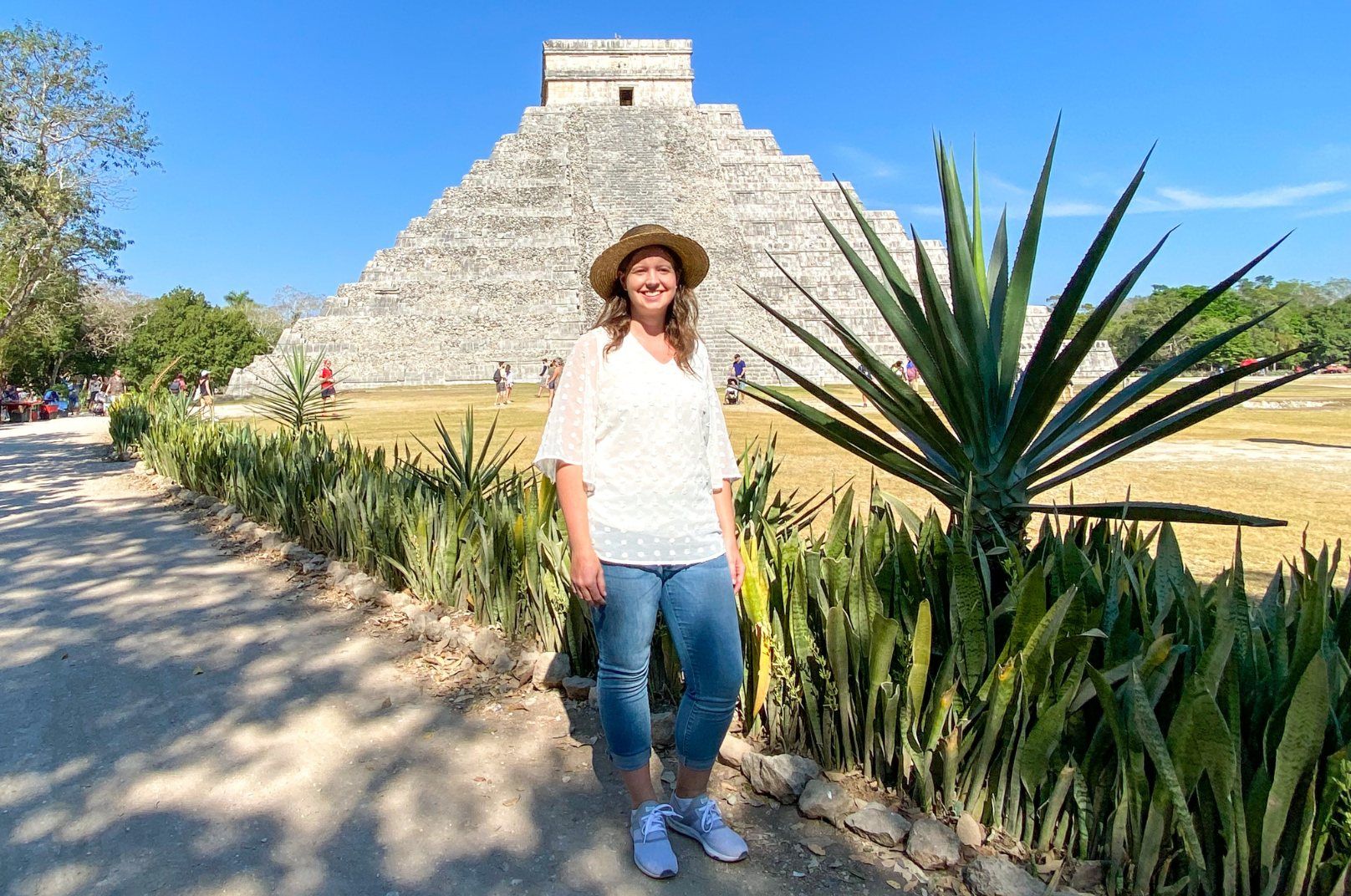
In the 13th century, Chichen Itza was abandoned for reasons still unknown. Scientists and anthropologists speculate that droughts, exhausted soils, and royal quests for conquest and treasure contributed to Chichen Itza’s decline.
After centuries of being lost in the jungle, Chichen Itza was rediscovered by the Spanish in the 16th century. Unfortunately, Spain’s colonization resulted in more damage and loss to Chichen Itza. In modern history, Chichen Itza has been studied, restored, and protected as a UNESCO World Heritage Site.

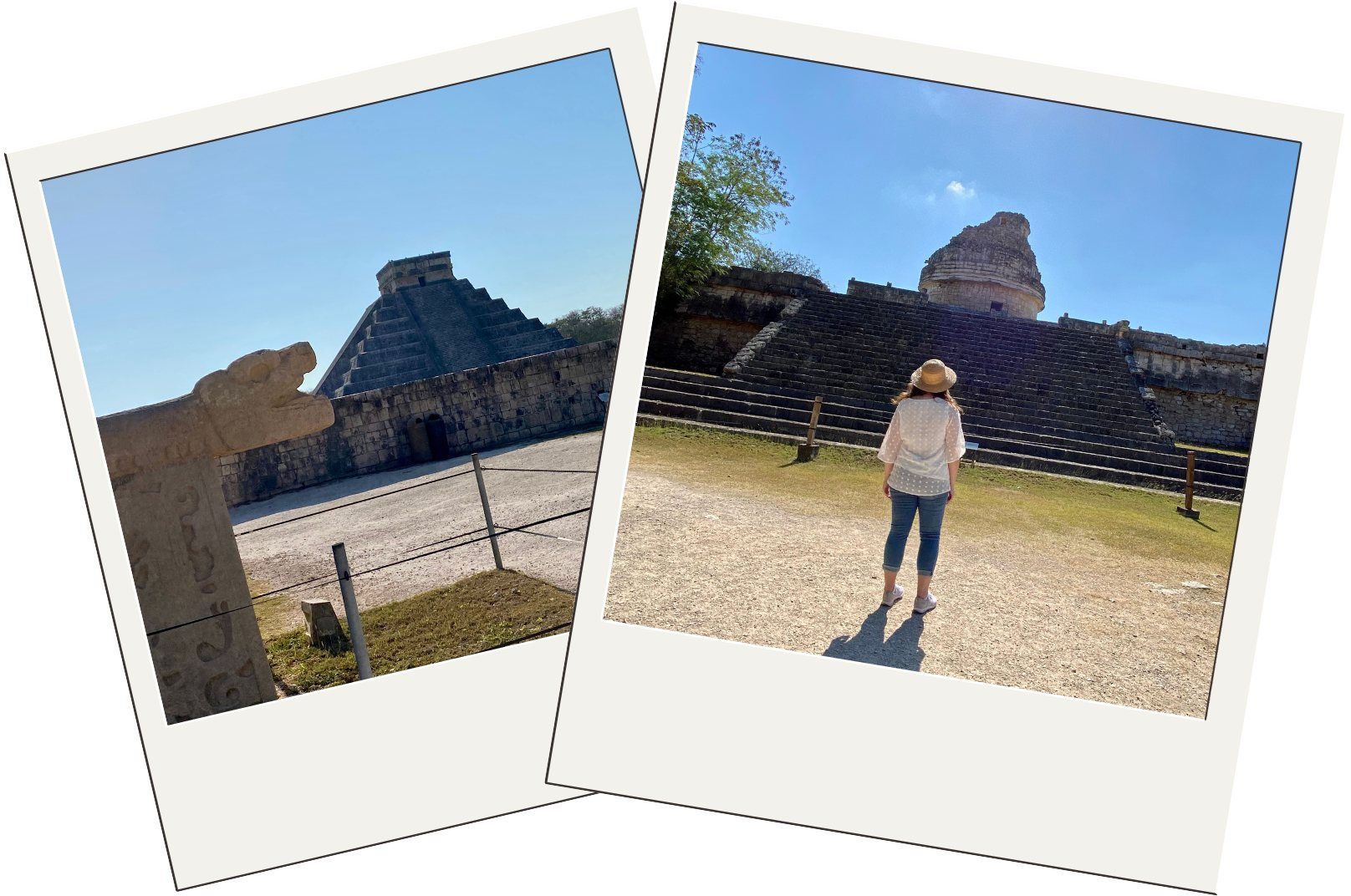
When To Go
The best time to visit Chichen Itza is during the cooler and drier months of November through February. Daytime temperatures average around 75-80 degrees, making these the most pleasant months of the year. However, this is also the peak tourist season, so crowds will be larger, prices higher, and lines longer.
The Spring Equinox in May is the most crowded day of the year at Chichen Itza. This is the only day of the year when the famous shadow serpent appears on the Pyramid of Kukulcan.
If you’re looking for smaller crowds, consider visiting during the shoulder seasons of March through May and September through October. These months will be hot, so arrive early in the morning, but as long as you avoid the Spring Equinox, you’ll have fewer crowds and lower prices.
The rainy season runs from June through August when it will be HOT, HUMID, and most likely wet. While these months don’t have the best weather, the crowds and prices are at their lowest all year.

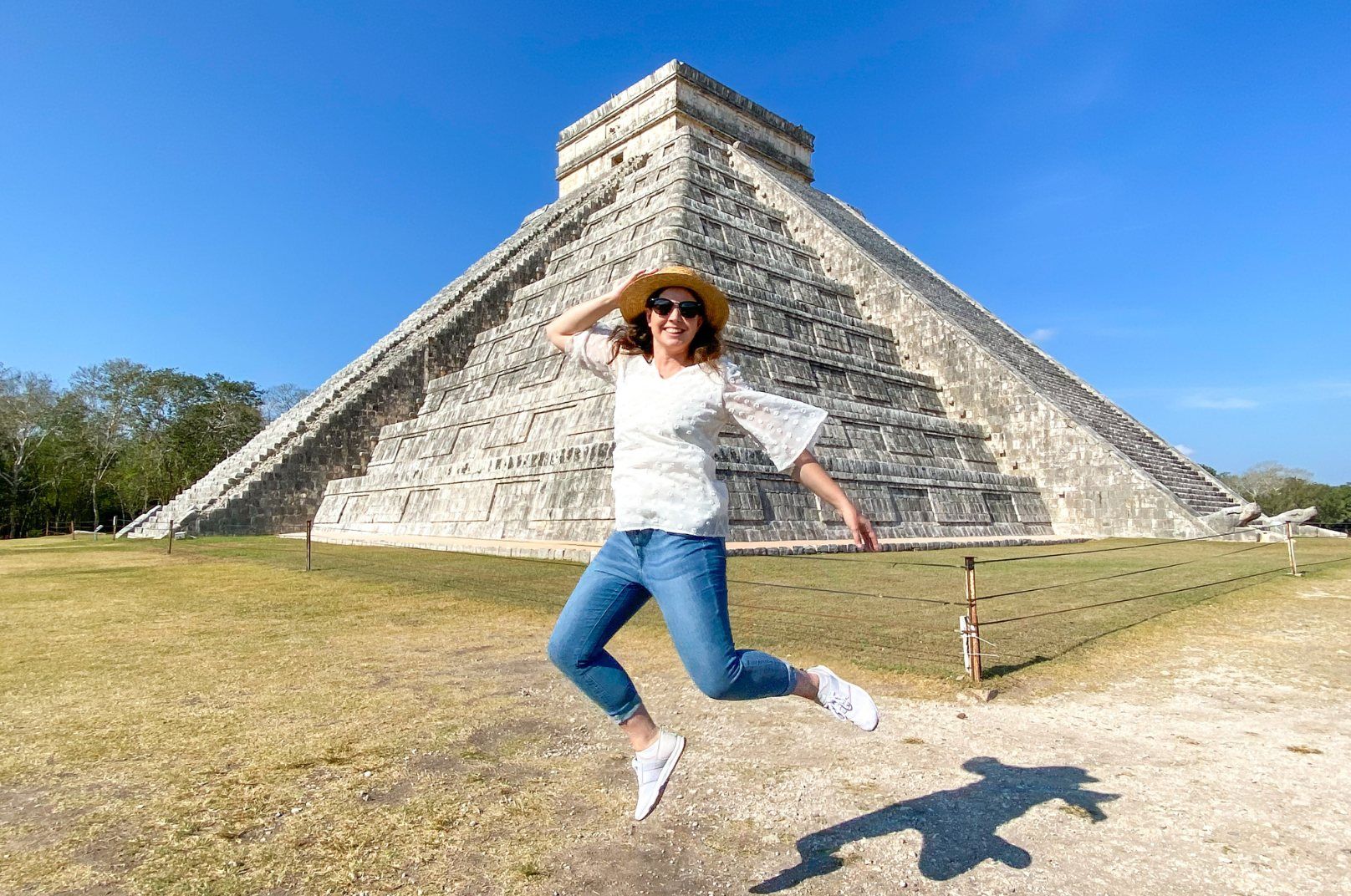
What To Do
The best thing you can do at Chichen Itza is to hire a local tour guide. A guide will share more information and insights about this archaeological site than a guidebook or the internet ever could. Plus, local guides know the best photo spots, how to avoid some of the crowds, and which craft stalls sell authentic souvenirs.
Your guide can customize a walking tour for you, so I recommend including these sites: the Pyramid of Kukulcan, the Great Ball Court, the Temple of the Warriors, the Sacred Cenote, El Castillo, and El Caracol.

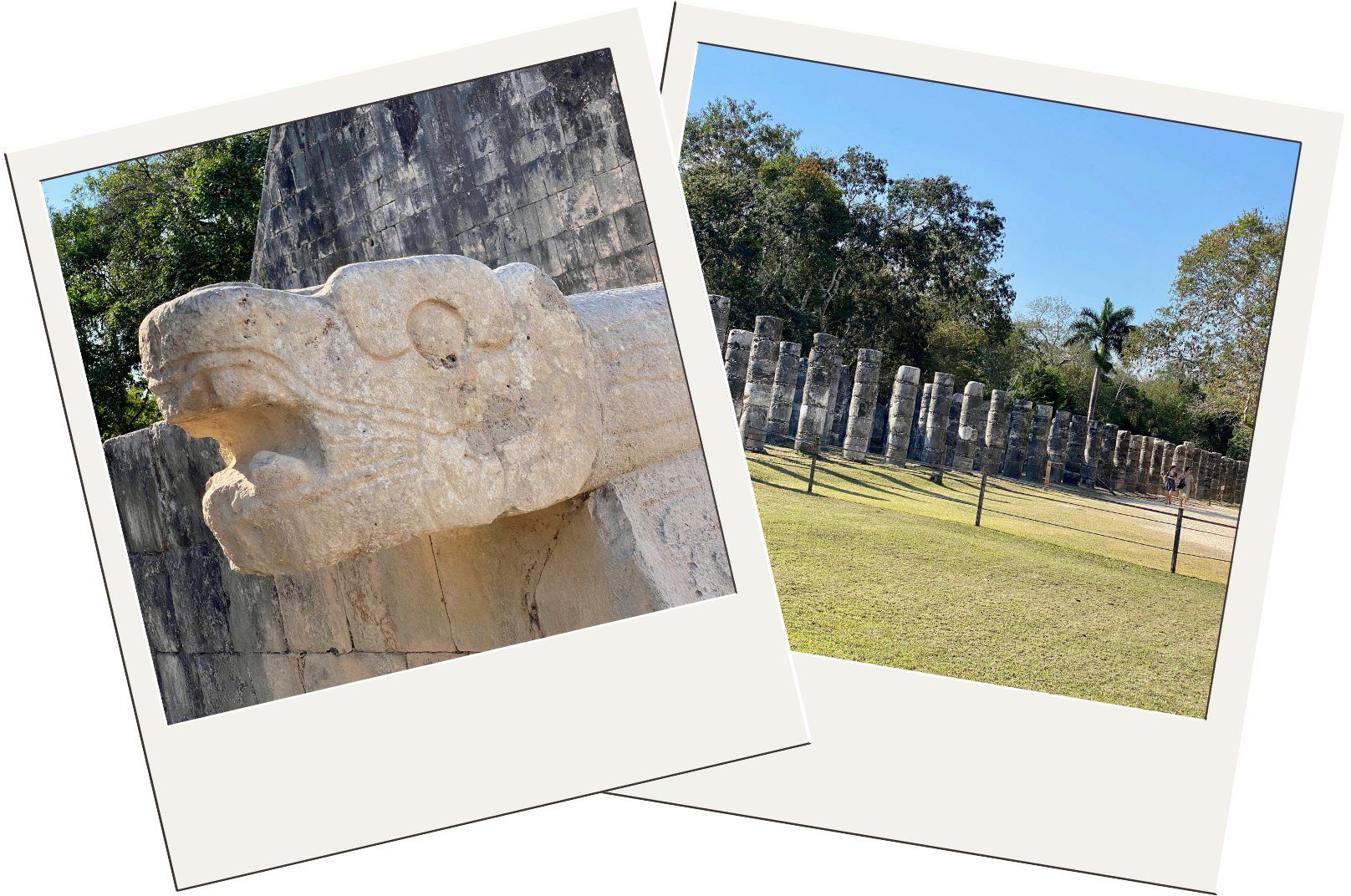
How and When To Get Here
Chichen Itza is located in the heart of the Yucatan Peninsula, accessible from almost every major town. You can get here by car or bus or join a guided tour that includes transportation.
If you’re driving in a rental car, head towards Cancun or Merida, then follow the signs toward the ruins. Buses run from various cities in the Yucatan, including Cancun, Playa del Carmen, and Merida. Once you arrive, parking is available at a designated area, and there are also facilities for bicycles and taxis.
Chichen Itza is open every day from 8:00 am to 5:00 pm. Arriving early to enter Chichen Itza right when it opens is the best way to avoid some of the heat and crowds. Go on weekdays, avoiding holidays and weekends, if possible.
The Chichen Itza entrance fee is around $35 USD ($614 MXN). Chichen Itza tickets can vary based on your age and the time of year, so be sure to check the Chichen Itza official website for updated prices.
No matter what time of day and year you choose to visit Chichen Itza, it’s essential to wear comfortable shoes (you’ll do a lot of walking on uneven ground and cobblestone streets), sunscreen, a hat, plenty of water, sunglasses, and a tip for your guide.
Read More

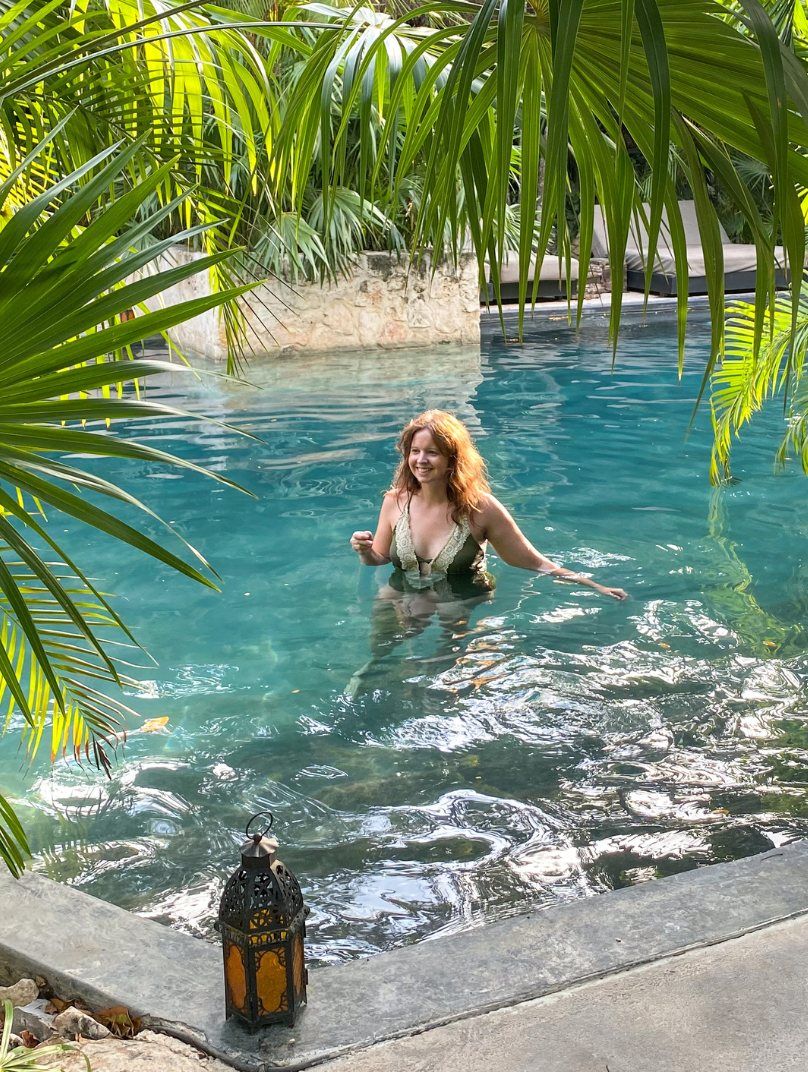
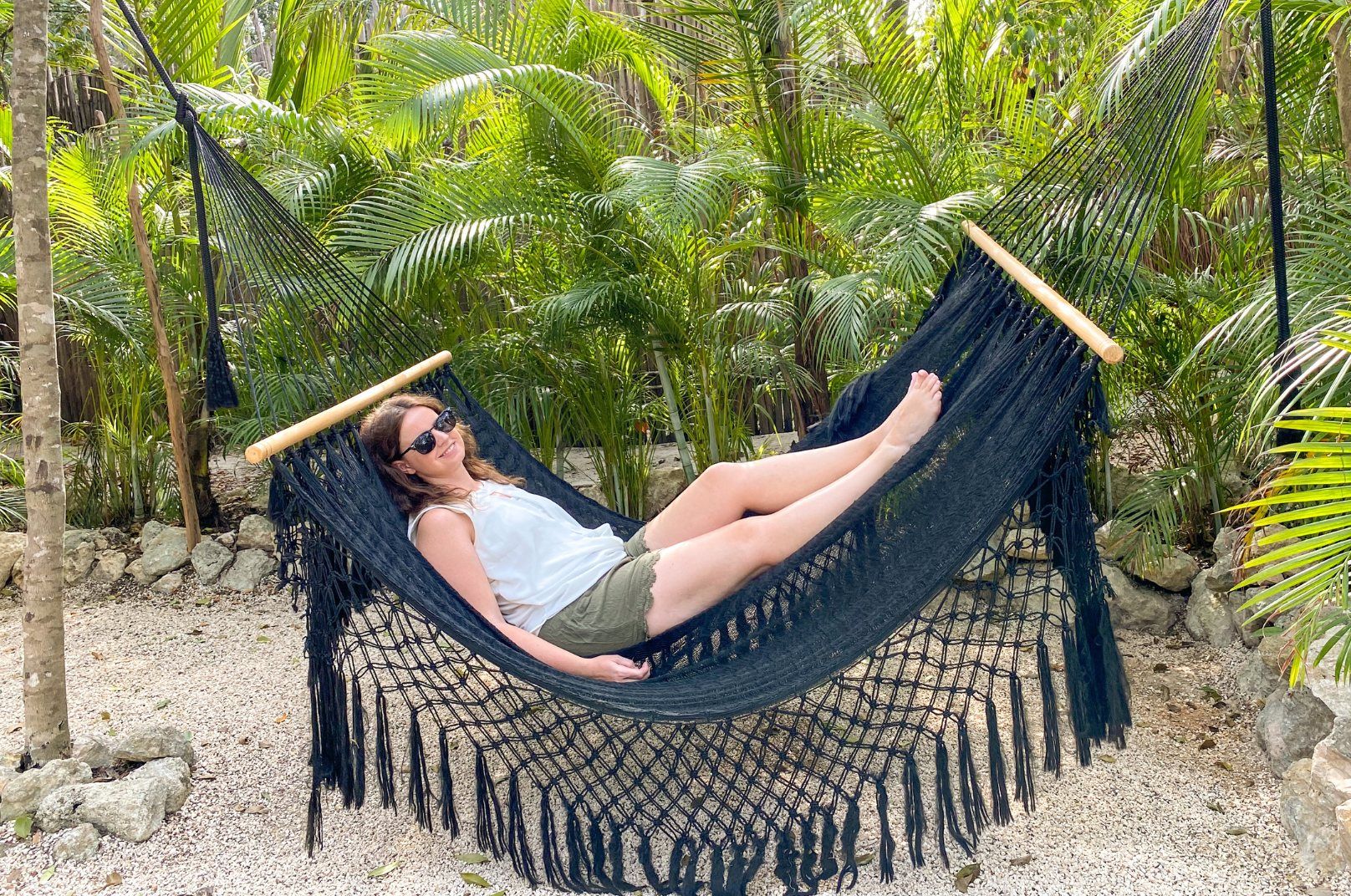
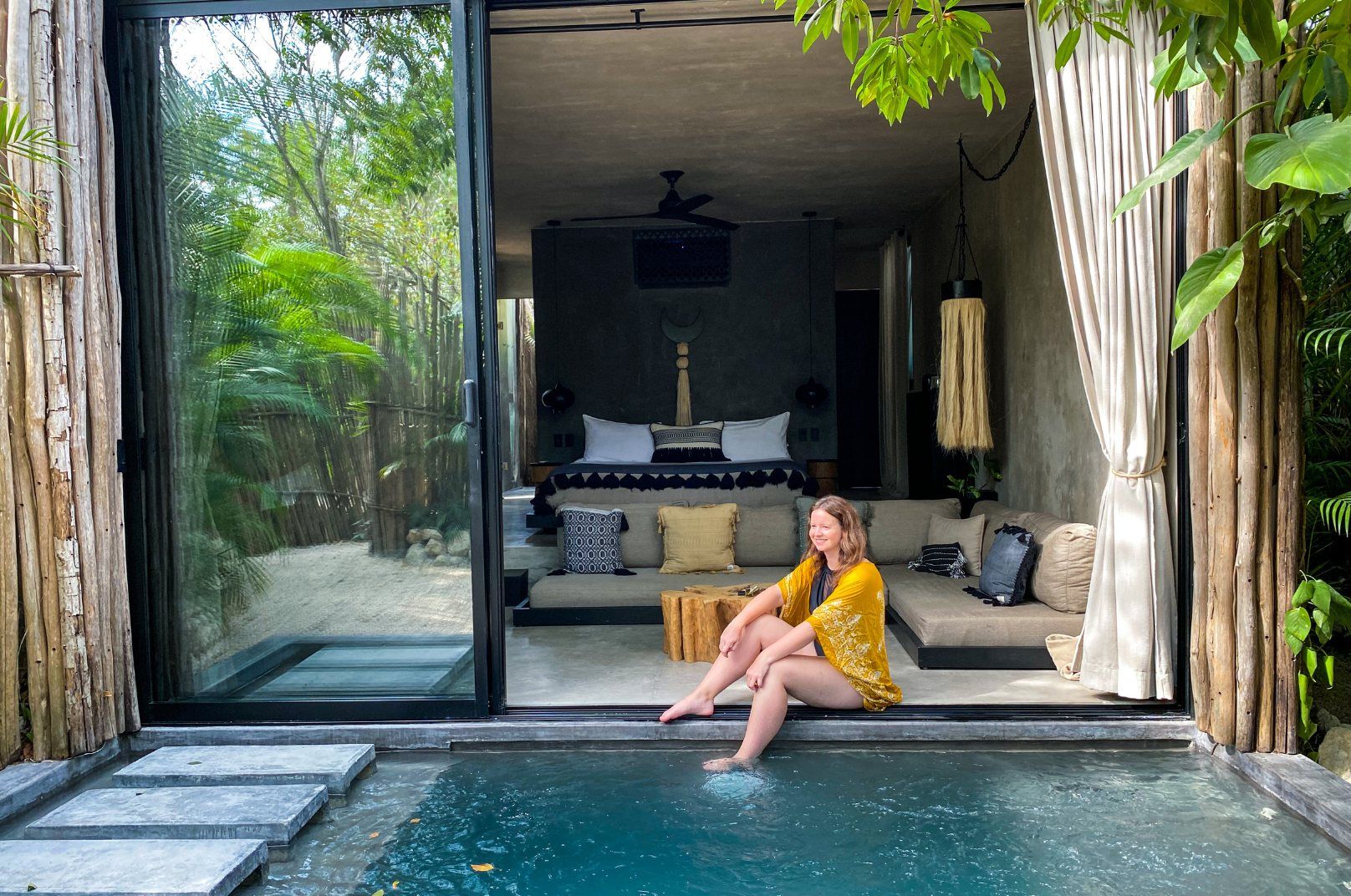
Where To Stay
Chichen Itza is a couple of hours from Tulum, Cancun, and Playa del Carmen, so it’s a perfect day trip from anywhere you would stay in the Riviera Maya. Merida and Valladolid are the closest cities, and both towns have several lodging options.
If you want to spend the night as close to Chichen Itza as possible, check out these hotels at Chichen Itza!

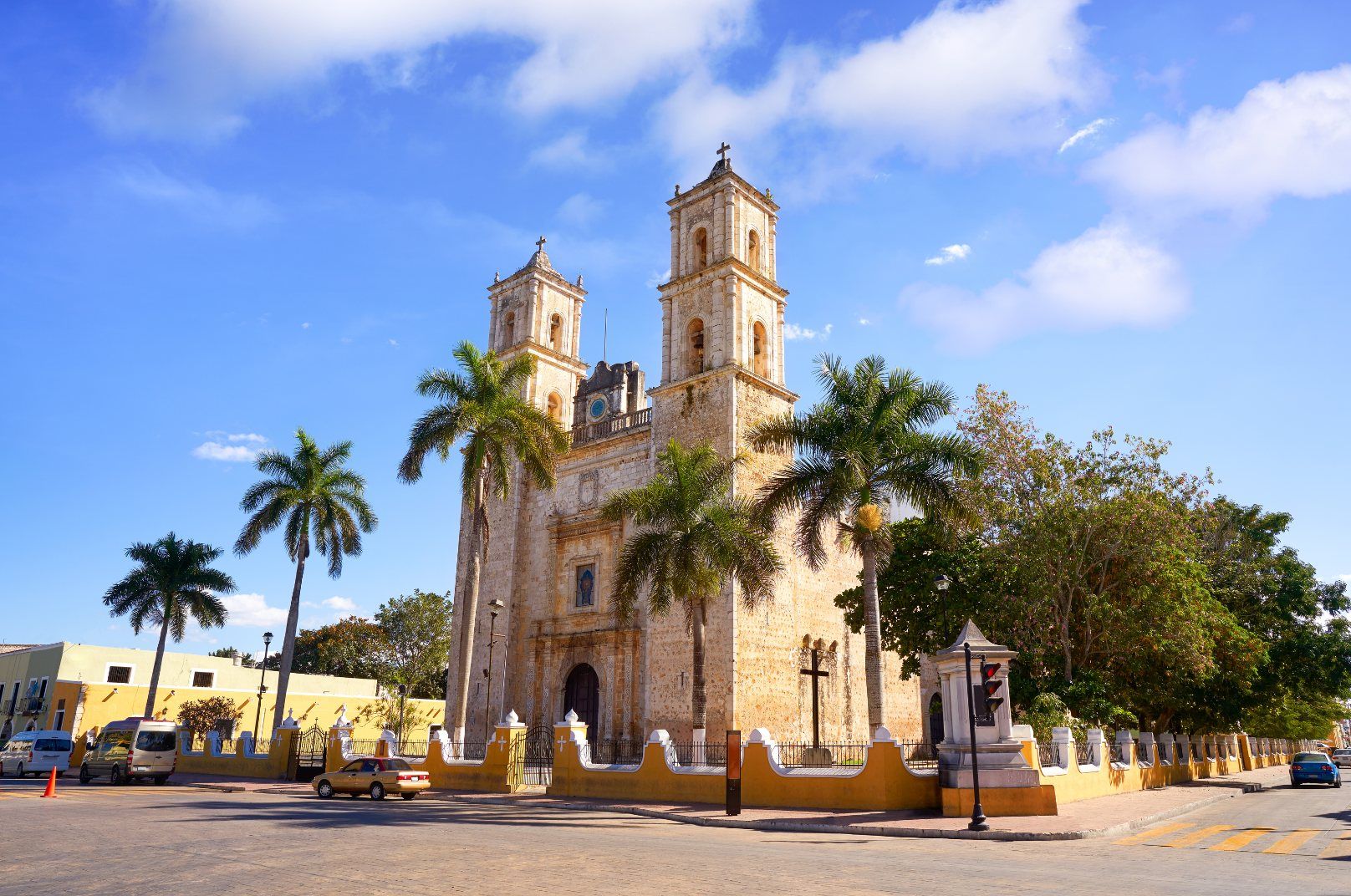
Have Lunch in Valladolid
Have Lunch in Valladolid
Whether you’re visiting Chichen Itza as a day trip or staying nearby, having lunch in the Colonial city of Valladolid (about a 30-minute drive from Chichen Itza) is the best way to rest, relax, and fill up on incredible food and drinks after a long, hot morning exploring the ruins.
When you’re in Valladolid, I recommend eating at La Casona de Valladolid and trying the cochinita pibil, a slow-roasted pork dish! You should also walk around the town square to the colorful colonial buildings and impressive cathedrals.
Read More

Cool Off In A Cenote
Two of the most beautiful cenotes on the Yucatan Peninsula, Cenote Ik Kil and Cenote Chukum, are just a short drive from Chichen Itza. So after a morning walking through the ruins and lunch in Valladolid, spend the afternoon cooling off in one of these cenotes.
Cenote Ik Kil is arguably the most popular and iconic cenote in the region, so be prepared for crowds, lines, and high prices. But it’s worth it to float in this natural wonder.
Cenote Chukum has remained blissfully off-the-beaten-tourist-path, giving you a quieter, more secluded, and intimate atmosphere. Plus, there’s a zip line into the cenote!
Both of these cenotes require walking down lots of steep, slippery stairs, so take your time and wear water shoes. You’ll also want to rent a locker to safely store your belongings while swimming.
Read More

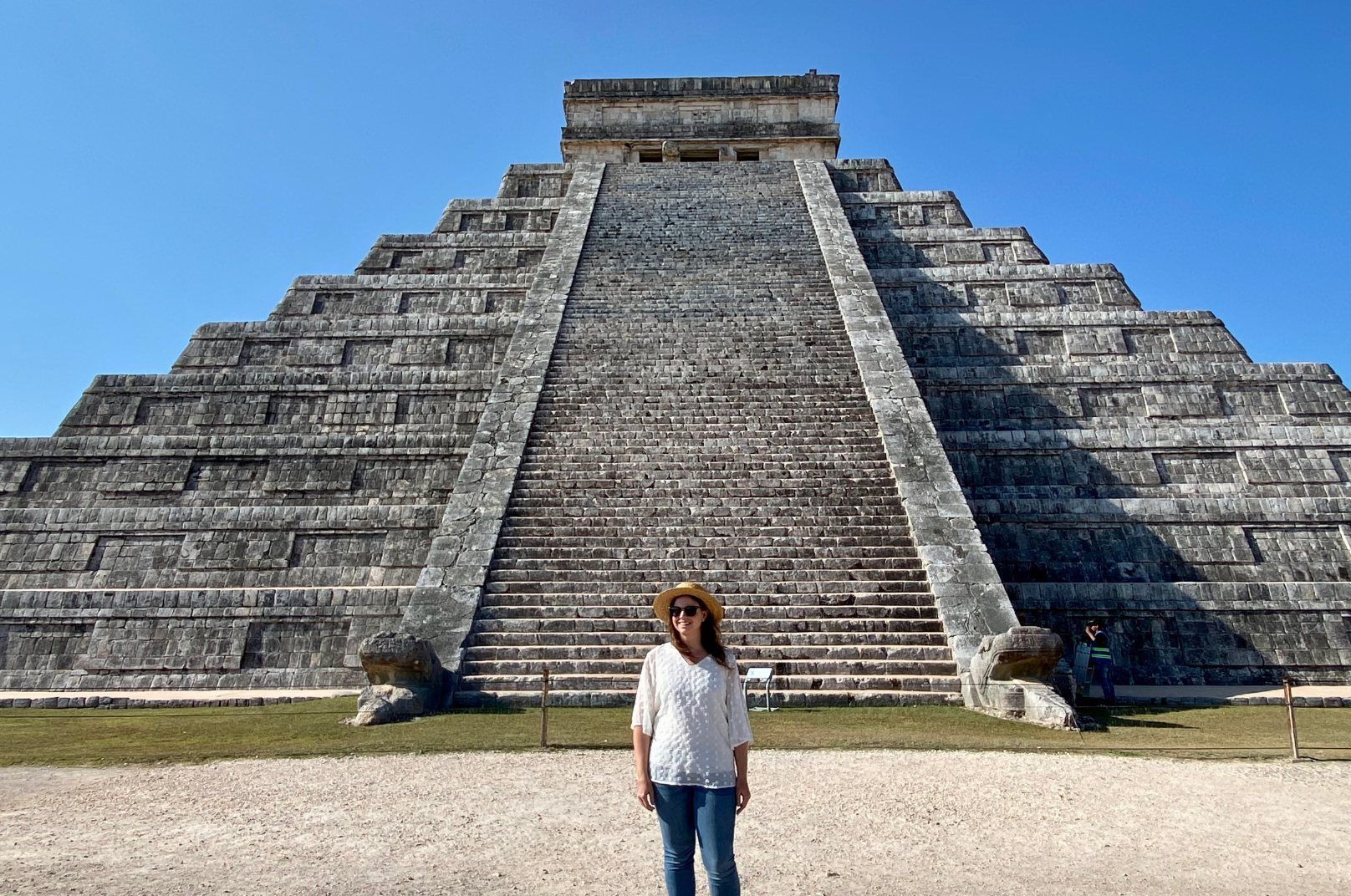
Takeaways
From the towering Pyramid of Kukulcan to the serene Sacred Cenote, each landmark in Chichen Itza is a mesmerizing and fascinating archaeological site. And for those lucky enough to visit during the Spring Equinox, the celebration is a once-in-a-lifetime experience.
So start planning your trip to Chichen Itza today and check one of the New Seven Wonders of the World off your bucket list!

Shop My Riviera Maya Essentials

What would you add to this Chichen Itza guide? Share with us in the comments!

Recommended Tours in The Riviera Maya

Plan The Rest Of Your Trip

This Chichen Itza guide is not a sponsored post, and the thoughts and opinions expressed in this Chichen Itza guide are entirely my own. Some of the links in this Chichen Itza guide are affiliate links, and, at no cost to you, I may earn a small commission from this Chichen Itza guide.
 Destinations
Destinations Packing
Packing Travel Tips
Travel Tips
 Photography
Photography Points & Miles
Points & Miles Credit Cards
Credit Cards